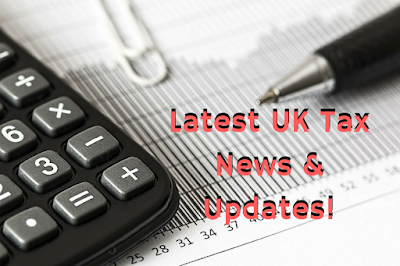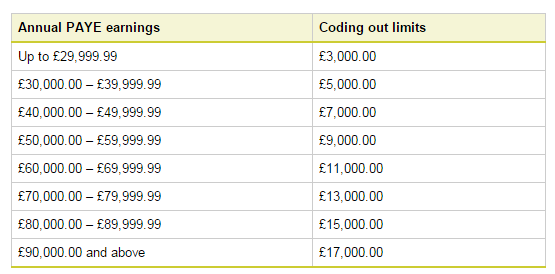Income Tax Not CGT On Property Sale
Finance Act 2016 brought in new rules to ensure that overseas property traders and developers are subject to UK income tax or corporation tax when they dispose of UK properties from 5 July 2016. However the way in which the legislation is drafted may catch some buy-to-let landlords.The new rules treat UK property sales/development of land as part of a trade and therefore potentially taxed at income tax rates up to 45% instead of the 28% rate that would apply to capital gains. There would also be class 2 and class 4 national insurance contributions due if the transaction is deemed to be part of trading.
The transaction is taxed as trading if:
a) One of the main purposes in acquiring the land was to realise a profit on its disposal; or
b) One of the main purposes in acquiring the property which derives its value from land was to realise a profit on its disposal; or
c) The land is held as trading stock; or
d) One of the main purposes of developing the land was to realise a profit on its disposal when developed
There will be no change in tax treatment for individuals or partnerships already operating as property dealers or developers.
However, it is felt that those buy-to-let investors who acquired a property with a view to ultimately selling on at a profit may be brought within the scope of the new rules by condition (a).
100% Tax Relief For Low Emission Cars To Continue
Currently 100% capital allowances are available when a business buys a motor car with CO2 emissions of no more than 75 grams per kilometer. Legislation has now been passed to reduce the threshold to just 50 grams from April 2018 but also to continue the tax relief for 3 years until 2021.Normally motor cars only receive a writing down allowance at the rate of 18% or 8% on a reducing balance basis, which means it can take several years to get tax relief for the cost of the vehicle. The cost of a low CO2 car can therefore be immediately written off against business profits.
Note: The motor car must be new and bought either for cash or on hire purchase to get the 100% tax relief.
Where the car is provided for use by a director or employee of the business then there would be a Benefit in Kind taxable on the individual based on the CO2 emissions and original list price of the car.
Another 100% Tax Relief Ends Next Year - Act Soon
Currently the business premises renovation allowance provides 100% tax relief for the cost of renovating a commercial property located in one of the 2,000 or so designated disadvantaged areas, provided it has been out of commercial use for at least 12 months. The premises should then be brought back into commercial usage or rented out to a business to use within its trade or profession. Unfortunately this generous tax break is due to end in April 2017 so get in quick if you are considering renovating such a property. It may be an office block, factory or warehouse that you already own or a property on the market that has been out of use for at least 12 months.Typical qualifying costs would include building works, architectural and design services, survey and engineering costs, planning application costs and other statutory fees. The works must now be completed within 36 months of the expenditure being incurred as many renovation projects involved the payment of certain costs in advance.
Provided the premises are retained for at least 5 years there is no claw back of the tax relief given.
Proposed Changes To UK Domicile Rules
Where an individual is resident but not domiciled in the UK there are special rules that apply to that person's overseas income and capital gains. Plus only their UK assets are charged to inheritance tax. The government has been consulting this summer on possible changes to the rules from 6 April 2017.Currently the UK domicile rules provide that where an individual’s father is non-domiciled then his children automatically take on the father’s domicile (domicile of origin). However, it is proposed that from 6 April 2017, an individual is deemed domiciled for income tax and capital gains tax if he meets either of two conditions:
• was born in the UK and has a UK domicile of origin. The individual must also be UK resident in the tax year under consideration.
• must have been UK resident for tax in at least 15 out of the 20 years preceding the tax year under consideration.
The 15/20 year rule will also replace the current 17/20 year rule that currently applies for inheritance tax so that there is a common definition for all three taxes.
Inheritance Tax Implications Of New Domicile Rules
Individuals who are domiciled in the UK are subject to inheritance tax (IHT) on their worldwide assets wherever situated. Non-UK domiciled individuals are currently only subject to IHT on their UK assets.Classic planning for non-doms was to hold UK assets, particularly UK houses, through an offshore trust or company. The consultation on proposed changes suggests that such a structure will be ineffective in future with the underlying UK house being chargeable to IHT.
These changes are extremely complex so please contact us if they are likely to affect you.
Penalties for Careless Errors in Accounting Records
Where additional tax is payable as the result of an HMRC enquiry and it is shown that the additional tax is due to poor accounting records, the maximum penalty that can be imposed is 30% of the additional tax for failure to take reasonable care. Where the error is deliberate, the penalty will be between 20% and 70% of the extra tax due, rising to 100% where the matter is deliberate and concealed by the taxpayer.We can negotiate lower penalties on your behalf as the penalty can usually be reduced if we tell HMRC about the error. HMRC may make further reductions depending on the quality of the disclosure and if we help HMRC work out what extra tax is due.
It is also possible to have the penalty suspended if the introduction of internal controls or additional checks can minimise the risk of the error recurring.
We can of course work with you to introduce procedures to minimise the risk of errors in your accounting records so that such penalties do not arise in the first place.
Contact us if you need more information or business help:
PJ | ☎ 020 89310165 | ☏ 07900537459 | ✉ info@apjaccountancy.com





